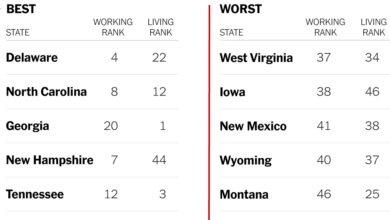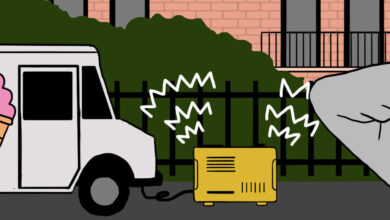Is It Safe to Have a New Year’s Eve Party During the Omicron Surge?

[ad_1]
Q: I had been looking forward to throwing a New Year’s Eve party after not being able to have one last year. I sent out invitations, but then Omicron began to surge in New York City. Now I don’t know what to do. Is it safe to throw a party? What do I tell my guests?
A: The highly transmissible Omicron variant has taken hold in New York City, whereas of Dec. 22, there was an average of 11,797 reported coronavirus cases a day, the highest at any point in the pandemic, and a 408 percent increase from two weeks earlier.
This means that anyone with big plans for New Year’s Eve is facing hard choices. Before you move forward with your party, you need to consider your tolerance for risk, the vaccination status of your guests and their overall health.
“You have to ask yourself: What is your tolerance for someone at the party getting infected?” said Dr. Ashish K. Jha, dean of the Brown University School of Public Health. “If your tolerance is zero, then you cannot have a party.”
Dr. Wafaa El-Sadr, the founder and director of ICAP at Columbia University’s Mailman School of Public Health, cautions New Yorkers from throwing a party this year, even if they are not terribly worried about getting sick. “Just the word ‘party’ in and of itself gives me pause,” she said. “This may not be the right time to have such an event, under the conditions where we have such a highly transmissible variant that’s already in our community.”
But Dr. Jha sees more room for nuance, particularly for people who are at low risk for serious illness and have received a booster shot. “We’ve been at this for two years,” he said. “New Year’s Eve gatherings are really important for lots of people, they certainly were for me when I was younger.”
And so, you have to weigh the risks against the rewards. If you really want to throw this party, go back to your guests with new rules. Limit the guest list to those who have received a booster shot. That restriction alone will whittle down the size of your party. Although 71 percent of New Yorkers are fully vaccinated, less than 19 percent had received a booster shot by mid-December. Require guests to take a P.C.R. test 24 to 48 hours before the event and a rapid antigen test the day of the event.
“Greet people at the door with the rapid test,” said Dr. Ingrid Katz, the associate faculty director of the Harvard Global Health Institute and an associate professor at Harvard Medical School. “It’s the new party favor.”
Ideally, parties should happen outdoors with heat lamps and, where allowed, fire pits. Keep your numbers small (this is the year for an intimate gathering, not a blowout). If the festivities do move indoors, keep the windows open and the masks on. “Indoor events, even with all the best intentions, can lead to superspreader events,” Dr. Katz said.
So how do you break the news to your guests that the rules have changed? “Be brutally honest, without being brutal,” said Elaine Swann, an etiquette expert. Explain the new terms clearly and honestly, and enforce them. Remind guests that even with the restrictions, they could still contract the virus. So, they should avoid visiting high risk friends and family in the days after the party.
For weekly email updates on residential real estate news, sign up here. Follow us on Twitter: @nytrealestate.
[ad_2]
Source link






